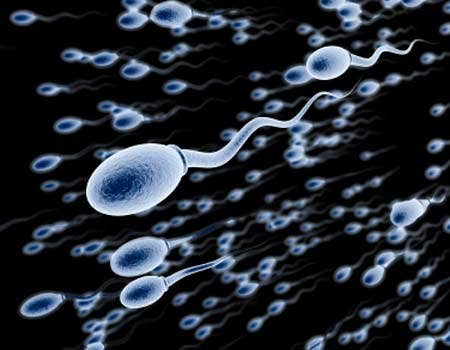Are you having problems getting pregnant? You may be doing all you can to increase your odds, but part – or all – of your struggle with infertility might be to blame on your guy. In approximately 40 percent of couples, the male partner is either the sole cause or a contributing cause to infertility, according to the American Society for Reproductive Medicine.
What’s more, experts say sometimes men aren’t even screened for this issue.
Many times, in vitro fertilization (IVF) is the solution, even if the woman has no fertility issues and her partner has had a satisfactory semen analysis – a test to measure the amount and quality of a man’s sperm. However, research shows a significant amount of these men will still have an underlying medical condition, according to Dr. Joseph Alukal, assistant professor in the departments of urology and obstetrics and gynecology and director of male reproductive health at NYU Langone Medical Center in New York City.
“It’s not that somebody didn’t recognize it; it’s that they’re choosing not to look to find an answer why,” he said.
Bridgit Danner, a licensed acupuncturist and health coach said some men do not receive a thorough semen analysis, or they will get the ‘all clear’ from their doctors without having a full understanding of the results.
“There’s a certain parameter to get a natural pregnancy,” said Danner, who is the author of Making Super Sperm. “There’s a much lower parameter to say you’re a good candidate for IVF.”
What causes male infertility?
During ejaculation, a man releases millions of sperm, yet only a few actually make it to the egg.
“It’s all an odds game,” Dr. Laurence Levine, chief medical officer of Promescent and professor of urology at Rush University Medical Center in Chicago, Ill. “We want to get as many good guys as close to the egg as possible.”
A hormonal imbalance is a common, reversible cause of male infertility, as testosterone is important for sperm development and maturity. Luteinizing hormone (LH) tells the cells in the testicle to make testosterone, and follicle-stimulating hormone (FSH) is responsible for telling the sperm to make new cells.
If levels of these hormones are too high or too low, sperm production can be disrupted – making it difficult for couples to conceive.
Additionally, male infertility can be genetic or caused by an infection, injury, or medical condition. Another common and reversible problem is a varicocele, which occurs in about 40 percent of infertile men. A varicocele is an enlargement of the veins that wraps around the testicles and affects sperm development.
Men may not even realize they have the condition until they struggle to conceive. Luckily, approximately 90 percent who have it surgically corrected will have an improvement in sperm quality, Levine said.
According to a recent study in the journal Fertility and Sterility, men with high phthalate levels—chemicals found in plastics and personal care items—were more likely than women to experience infertility and had a 20 percent reduction in fertility. Phthalates are known endocrine disruptors, and experts believe these chemicals interfere with how sperm is made.
Studies also show stress may be another cause of infertility, because high levels of the stress hormone cortisol block the hormones responsible for creating sperm, Danner said.
But medical conditions and toxins aside, experts say diet is perhaps the number one cause of male infertility.
“The person who is eating a poor diet may be missing out on many of the nutrients needed to support proper sperm making or to enable their sperm to function properly,” Alukal said.
If you’re trying to get pregnant, here are some ways your guy can improve his fertility.
1. See a urologist
A urologist can determine if a physical or hormonal problem exists. A doctor will likely run and repeat a semen analysis, which evaluates the volume, amount, motility (movement) and the shape of the sperm. Blood tests can also look for infection and pH levels.
If a hormone problem is found, medication works 90 percent of the time to improve levels – although sperm production may vary.
“Everything we can do that provides a better environment to produce sperm is goal,” Levine said.
2. Eat healthy
Nix processed foods, eat plenty of fruits and vegetables and choose organic, because pesticides can affect sperm quality, production and cause inflammation.
“Every meal you eat should be nutrient dense,” Danner said.
Good foods for fertility include shellfish, nuts, and sunflower seeds.
3. Lose weight
Being overweight or obese can affect fertility, and a recent Harvard School of Public Health study found that exercise – weightlifting in particular – can improve sperm count.
4. Deal with gastrointestinal problems
Heartburn, gas, constipation and irritable bowel syndrome may mean your guy isn’t absorbing enough nutrients, which can affect sperm production. So it’s important to see a doctor who can determine what’s going on.
5. Quit smoking and drink less
One more reason to quit: Studies show smoking affects sperm production. Alcohol and caffeine have also been linked with infertility and can affect the digestive track because they’re acidic, Danner said.
6. Try to be patient
It takes three months for your man to make new sperm, so “the interventions we start today are only likely going to pay off in four, five, or six months,” said Alukal, who noted that IVF can be done at the same time during treatments.







Leave a Reply